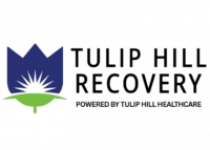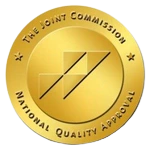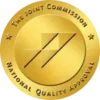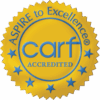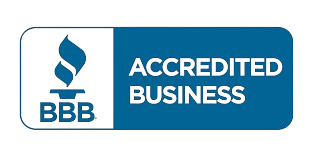Family Therapy for Addiction Recovery
Addiction doesn’t just impact the person using substances. It affects the entire family system.
When someone struggles with drug or alcohol dependency, their loved ones often experience the emotional fallout: communication breakdowns, resentment, mistrust, and even trauma.
Over time, unhealthy coping patterns can develop—enabling behaviors, conflict avoidance, or cycles of blame—that keep everyone stuck.
That’s why family therapy is such a critical component of the recovery process.
At Tulip Hill Recovery, we recognize that lasting healing often occurs in a collaborative environment. Addiction touches every part of a family’s life, so true recovery should include everyone impacted by it.
As part of our holistic and dual-diagnosis treatment model, family therapy supports both the client and their loved ones. It complements individual therapy, group counseling, and trauma-informed care, creating a well-rounded path to recovery.
Whether your family is learning to support a newly sober loved one or navigating years of damage caused by substance use, we meet you where you are—with compassion and practical tools for lasting change.
At Tulip Hill, we emphasize the importance of our family therapy for addiction not just as an added service, but as a core pillar of long-term healing.

What Is Family Therapy for Addiction?
Family therapy for addiction is a structured, therapeutic process designed to help families heal from the impact of substance use.
In a clinical context, it involves working with a licensed therapist who guides conversations between loved ones, helps identify unhealthy patterns, and supports the development of healthier communication, trust, and connection.
At Tulip Hill Recovery, family therapy is offered in conjunction with other core services, including individual counseling, group therapy, and medication-assisted treatment. It’s part of a well-rounded, evidence-based approach to recovery because healing doesn’t just happen within the individual. Families need support, too.
It’s essential to recognize that “family” encompasses not only parents and spouses, but also extended relatives and those who are like family.
Family therapy may include siblings, adult children, grandparents, or even close friends—anyone who plays a significant emotional role in the client’s life.
We also welcome chosen family structures, especially for clients in recovery who may be estranged from biological relatives.
One of the most common myths about family therapy is that it’s about pointing fingers or dredging up old wounds.
In reality, it’s about creating space for understanding, forgiveness, and shared accountability. It’s not about blaming any person—it’s about identifying patterns that aren’t working and learning how to move forward together.
Whether your family has been deeply involved or kept at a distance during a loved one’s addiction, family therapy offers a path toward reconnection, growth, and lasting support.
Types of Family Therapy at Tulip Hill Recovery
At Tulip Hill Recovery, we believe that no single approach works for every family. That’s why our family therapy offerings draw from multiple evidence-based modalities designed to support healing on every level.
Below are some of the most effective types of family addiction therapy programs used in treatment:
Structural Family Therapy
Structural Family Therapy focuses on improving the organization and functioning of the family system.
Addiction can disrupt natural roles—parents may become overly controlling, siblings may become withdrawn, or partners may shift into enabling patterns.
This approach helps families:
- Restructure unhealthy dynamics
- Clarify roles and responsibilities.
- Establish clear, healthy boundaries.
By reshaping the “structure” of relationships, this model creates a foundation for long-term recovery support.
Strategic Family Therapy
Strategic Family Therapy zeroes in on behaviors and communication patterns that reinforce substance use.
This model is especially helpful when families feel stuck in a cycle of arguments, avoidance, or enabling.
Through this method, therapists:
- Set specific, solution-focused goals
- Guide families in practicing new interaction styles
- Test small behavioral changes for real-world impact.
It’s a practical approach to shifting the behaviors that keep addiction active in the home.
Multidimensional Family Therapy
Designed primarily for adolescents and young adults, Multidimensional Family Therapy (MDFT) addresses the many layers contributing to substance use: home, school, peer groups, and mental health.
This evidence-based model includes:
- One-on-one therapy for the client
- Family sessions with caregivers
- Coordination with schools, courts, or community services (if needed)
MDFT is highly effective in treating co-occurring disorders and helping families stay engaged in their child’s recovery.
Psychoeducation and Communication Skills
Not all family sessions are heavy. Some are focused on teaching, offering valuable tools and knowledge to help families navigate recovery with confidence.
These sessions include:
- Education on addiction, relapse, and recovery stages
- Boundary-setting strategies
- Communication techniques like active listening and non-defensive responses
This type of family therapy builds emotional resilience, empathy, and understanding for the road ahead.
At Tulip Hill, we tailor these therapy models to meet each family’s unique needs, ensuring that every participant feels seen, heard, and empowered.
What to Expect at Our Family Program
When your loved one enters treatment at Tulip Hill Recovery, healing extends beyond the individual—it includes the family, too. Our family therapy program is designed to support everyone affected by addiction.
If you’re wondering what to expect at our family program, here’s how it works.
The process begins during intake.
As part of the assessment, our clinical team gathers information about family history, relationships, and concerns. We will also invite family members to share their perspective, which helps guide treatment planning from the outset.
Participation in family therapy is flexible and tailored to each individual’s needs.
Sessions can take place in person at our Murfreesboro facility or virtually, accommodating busy schedules and long-distance family members.
We offer a mix of formats depending on the family’s needs, including:
Group family therapy to work through shared concerns and rebuild trust
Individual family sessions focused on specific relationship dynamics.
Weekend workshops or intensives for deeper education and emotional healing
Each session is led by an experienced and compassionate therapist who helps maintain a safe, respectful, and constructive space.
Families often find that they grow alongside their loved one in recovery. When the whole support system begins to heal, lasting change becomes far more possible.
What Happens During Family Therapy at Tulip Hill Recovery?
Addiction recovery isn’t a single event—it’s a process that evolves. At Tulip Hill Recovery, family therapy for addiction is tailored to fit each stage of that journey.
Whether your loved one is just starting with detox or is months into long-term recovery, your role matters.
Here’s how family involvement can look at each phase:
- During Detox or Early Recovery
In the early stages, emotions often run high. Family members may feel overwhelmed, confused, or uncertain about what comes next.
Family therapy during this phase is focused on education and emotional support.
We help loved ones understand what their family member is experiencing—physically, emotionally, and psychologically—and begin to unpack how addiction has affected the entire family system.
- During PHP and IOP Treatment
As your loved one progresses into more structured care like Partial Hospitalization (PHP) or Intensive Outpatient (IOP), family therapy shifts toward active participation.
This stage involves learning how to establish healthy boundaries, enhance communication, and address long-standing patterns in relationships.
Families are invited to attend sessions that run in parallel to their loved one’s treatment, ensuring both sides can grow and heal together.
- Aftercare and Long-Term Recovery
Recovery doesn’t stop after treatment ends. In fact, the post-treatment phase is where many families benefit most from ongoing therapy.
Family therapy in aftercare helps reinforce new habits, navigate relapse risks, and address any lingering emotional wounds. It’s a space where growth continues and relationships are rebuilt over time, with honesty, structure, and support.
- Emotional and Cognitive Warning Signs
- Mood Swings and Aggression: Quick changes from euphoria to intense anger, agitation, or irritability.
- Paranoia and Anxiety: Feeling overly suspicious, fearful, or constantly on edge.
- Psychosis: Experiencing hallucinations, delusions, or bizarre thinking patterns.
- Depression: Crushing sadness and hopelessness during crashes between meth binges.
Benefits of Family Therapy for Addiction Treatment
Addiction doesn’t just impact the individual—it affects the entire family. That’s why incorporating family therapy for addiction treatment is so crucial.
At Tulip Hill Recovery, we believe healing happens best when it includes everyone impacted by addiction, not just the person receiving treatment.
One of the greatest benefits of family therapy is its ability to rebuild trust.
Addiction often leads to broken promises, emotional distance, and painful miscommunication.
Through structured sessions, family members begin to reconnect with empathy and learn how to support one another without judgment.
Family therapy also helps reduce blame, shame, and codependency, which are common dynamics in households affected by addiction. Loved ones learn how to express their concerns in healthier ways and identify patterns that may have unknowingly enabled addictive behaviors.
Importantly, therapy teaches individuals to establish healthy boundaries and develop effective communication skills.
Families often struggle to distinguish between care and control.
With guidance, they learn how to set boundaries that protect their emotional well-being while still supporting their loved one’s recovery.
Most of all, family therapy reinforces the idea that recovery is a shared journey. No one has to go through it alone.
When families participate in the healing process, outcomes improve—relapse rates drop, relationships strengthen, and long-term recovery becomes more sustainable.

How Family Therapy Supports Dual Diagnosis Clients
Dual diagnosis refers to those who are living with both a substance use disorder and a mental condition, such as depression, anxiety, PTSD, or bipolar disorder.
At Tulip Hill Recovery, we specialize in treating these co-occurring disorders, and family therapy plays a vital role in that process.
For clients with dual diagnosis, the recovery journey can be more complex. That’s why involving family is essential.
Through therapy, loved ones learn how to support both the mental health and addiction recovery process, rather than focusing on one or the other.
This includes understanding how mental health symptoms can impact addiction triggers, and vice versa.
Our family therapy program also provides education on trauma-informed care, relapse warning signs, and emotional regulation techniques. Families are taught to recognize behavioral patterns and respond with empathy rather than fear or frustration.
Ultimately, family therapy helps loved ones become more than just observers—they become informed allies in recovery. With the right tools and support, families can create a more stable, understanding home environment that supports healing from both addiction and mental health struggles.
Levels of Care + Dual Diagnosis and Co-Occurring Disorders
At Tulip Hill Recovery, we believe that healing from addiction is a family journey, not just an individual one. As a family-owned treatment center with lived experience in recovery, we bring compassion, understanding, and real-world insight to everything we do.
Located in Murfreesboro, TN, Tulip Hill is easily accessible for families across Middle Tennessee. We serve individuals and their loved ones from all over the state who are seeking personalized, high-quality care.
Whether your loved one is just beginning treatment or has progressed further in recovery, there is a place for your voice, your healing, and your support.
Our licensed therapists specialize in addiction, mental health, and family systems, offering a safe, nonjudgmental space for families to process, learn, and grow together.
With education, practical tools, and guided support, we help families move from crisis and confusion to connection and resilience. At Tulip Hill, you’re not just part of the process—you’re part of the recovery.
Partial Hospitalization Program (PHP)
A Partial Hospitalization Program (PHP) is an intensive form of outpatient treatment that provides the clinical support of inpatient rehab without requiring a residential stay.
Designed for individuals who need a high level of care but are stable enough to live at home or in a sober living environment, PHP bridges the gap between inpatient treatment and traditional outpatient therapy.
At Tulip Hill Recovery, our PHP rehab in Murfreesboro typically runs 5 to 6 days per week and offers 30+ hours of therapy.
Intensive Outpatient Program (IOP)
At Tulip Hill Recovery, our Intensive Outpatient Program (IOP) in Murfreesboro is designed to bridge the gap between inpatient treatment and full independence.
IOP provides the structure and accountability necessary for early recovery, while still giving you the flexibility to live at home or in a sober living environment, work, attend school, and rebuild your life outside of treatment.
Whether you’re stepping down from a PHP rehab program or starting outpatient care for the first time, our Murfreesboro IOP offers comprehensive support, personalized care, and a strong community to help you achieve lasting success.
Addiction Treatment Aftercare
An aftercare rehab program is a follow-up plan that helps you stay on track after completing formal addiction treatment for a substance use disorder and any co-occurring disorders.
It’s not just a final step—it’s a continuation of care that helps you stay grounded and supported in early recovery.
With our addiction aftercare programs, paired with our proven treatment methods, you gain practical tools and ongoing check-ins that help you stay strong and avoid relapse.
Dual Diagnosis Treatment
As a leading dual diagnosis treatment center in Tennessee, we specialize in integrated care that treats the whole person, not just the symptoms.
Whether you’re dealing with depression and alcohol use, PTSD and benzodiazepine dependence, or another combination, we’re here to support you.
Our approach to dual diagnosis treatment is grounded in compassion, science, and personal experience.
We provide a safe space to uncover what’s really driving addiction, and we help our clients build the tools they need to recover from both.
Related Blog Resources
At Tulip Hill Recovery, we believe that education is a powerful tool in recovery. To help you better understand the effects of addiction and the path to healing, we’ve created several in-depth resources you can explore:
Start Family Therapy Today at Tulip Hill Recovery
Frequently Asked Questions — Family Therapy
Family therapy is a structured therapeutic approach that helps families understand addiction, improve communication, rebuild trust, and heal from the emotional strain substance use can create. At Tulip Hill Recovery, our licensed therapists guide families through evidence-based sessions that support both the individual in recovery and their loved ones.
Addiction impacts emotional wellbeing, communication patterns, boundaries, trust, and daily functioning. Family members often experience fear, resentment, confusion, or helplessness. Family therapy provides a safe space to process these emotions, learn healthy coping skills, and rebuild supportive relationships.
Anyone who plays a meaningful role in the client’s life can participate—parents, spouses, partners, siblings, adult children, or other significant family members. Your therapist will help determine who should be involved based on your family dynamics and treatment goals.
Family therapy strengthens long-term recovery by improving communication, reducing conflict, establishing healthy boundaries, and creating a stable support system. When families heal together, clients are more likely to stay engaged in treatment and maintain sobriety after completing their program.
Yes. Tulip Hill Recovery provides same-day assessments so families can get support as quickly as possible. Our team will evaluate your needs, discuss treatment options, and help you begin the healing process immediately.
Absolutely. Family therapy can help you understand addiction, learn communication strategies, and establish boundaries—even if your loved one has not yet entered treatment. Healing can begin with one person taking the first step.
Yes. All sessions at Tulip Hill Recovery are confidential. Your therapist will explain privacy guidelines, including how information can be shared among family members while still protecting individual confidentiality.
Session length and duration vary depending on your needs. Many families benefit from weekly sessions, while others may attend more or less frequently. Your therapist will help create a personalized schedule based on your treatment plan.
Family therapy can help with:
- Communication breakdowns
- Conflict and resentment
- Trust issues
- Codependency or enabling behaviors
- Setting healthy boundaries
- Emotional wounds caused by addiction
- Understanding co-occurring mental health conditions
Simply reach out for a confidential consultation. Our team will walk you through the process, answer any questions, and schedule your same-day assessment so your family can begin healing right away.
Family Therapy & Addiction Support in Murfreesboro, Tennessee | Tulip Hill Recovery
Addiction and mental health disorders impact not only the individual but also the entire family system. Tulip Hill Recovery offers family therapy in Murfreesboro, TN to help rebuild trust, improve communication, and support long-term recovery.
Substance use often leads to strained relationships, codependency patterns, boundary issues, and unresolved conflict. Without family involvement, relapse risk can remain elevated after treatment.
Our family therapy program provides structured sessions that focus on education about addiction, healthy boundary setting, communication skills, and healing relationship dynamics. Families gain tools to support recovery while also addressing their own emotional needs.
Family therapy is integrated into residential and outpatient programming at our Murfreesboro addiction treatment center to strengthen support systems beyond treatment.
When families heal together, recovery outcomes significantly improve.
Admissions specialists are available to provide confidential guidance.
The content available on Tulip Hill Recovery pages is designed to provide educational information related to addiction, detoxification, rehabilitation, and recovery. This information should not be interpreted as professional medical advice or treatment recommendations.
Addiction treatment is highly individualized. Detox and rehab needs vary significantly based on health history, substance use patterns, and mental health considerations. Information provided is general and may not apply to all individuals.
If an emergency arises — such as overdose, severe withdrawal symptoms, or immediate danger — call 911 without delay. Online resources are not a substitute for emergency medical care.
Medical detox should always be conducted under professional supervision. Attempting detox without medical oversight can be dangerous.
Insurance information is provided as general guidance only. Coverage varies by plan and carrier. Tulip Hill Recovery encourages all individuals to verify benefits directly with admissions staff.
Recovery outcomes are not guaranteed. Treatment effectiveness depends on many factors including engagement, clinical needs, and aftercare support.
References to external resources do not imply endorsement. Tulip Hill Recovery is not responsible for third-party content.
Website use does not establish a provider-patient relationship.
All content published on Tulip Hill Recovery website pages is provided for informational purposes only and should not be interpreted as medical, psychological, or legal advice. This information is not intended to diagnose, treat, cure, or prevent any disease or condition and should not replace consultation with licensed healthcare professionals.
Addiction is a chronic, relapsing medical condition that requires individualized care. Treatment approaches, detox protocols, and rehabilitation services vary depending on numerous factors unique to each individual. No information on this website should be relied upon to make treatment decisions without professional guidance.
If you are experiencing an emergency situation, including overdose, withdrawal complications, suicidal ideation, or immediate risk to yourself or others, call 911 immediately. Tulip Hill Recovery does not provide emergency medical services online or via website communication.
Never attempt to discontinue substance use or begin detox without proper medical supervision. Withdrawal can cause serious medical complications. Any information regarding detoxification is general in nature and does not substitute for physician-directed care.
Insurance information presented on this website is intended solely to assist users in understanding potential coverage options. Coverage is subject to verification, medical necessity determinations, and policy limitations. Tulip Hill Recovery encourages direct contact with our admissions specialists to confirm benefits and eligibility.
We do not guarantee treatment outcomes, length of stay, insurance approvals, or placement availability. Outcomes depend on numerous clinical and personal factors.
External links are provided for convenience and informational purposes only. Tulip Hill Recovery assumes no responsibility for third-party content or practices.
Use of this website does not establish a doctor-patient or therapist-patient relationship. Recovery requires professional support and individualized care.
Start Your Journey to Healing Today

Call or message us

Free assessment

Insurance check

Choose a start date
Get Family Support Now
Supporting Families Through Recovery
We understand addiction affects the whole family. Our comprehensive family program helps rebuild trust and restore relationships.
Weekly Family Therapy Sessions
Educational Workshops
Support Groups
Communication Skills Training
 | Medically Reviewed By: Board-Certified Psychiatrist and Addictionologist |
 | Clinically Reviewed By: Board Certified Clinical Social Worker |
Our Verifications & Affiliations
Yes, Your Insurance Covers Detox and Rehab Treatment.
Get Family Support Now
Supporting Families Through Recovery
We understand addiction affects the whole family. Our comprehensive family program helps rebuild trust and restore relationships.
Weekly Family Therapy Sessions
Educational Workshops
Support Groups
Communication Skills Training
